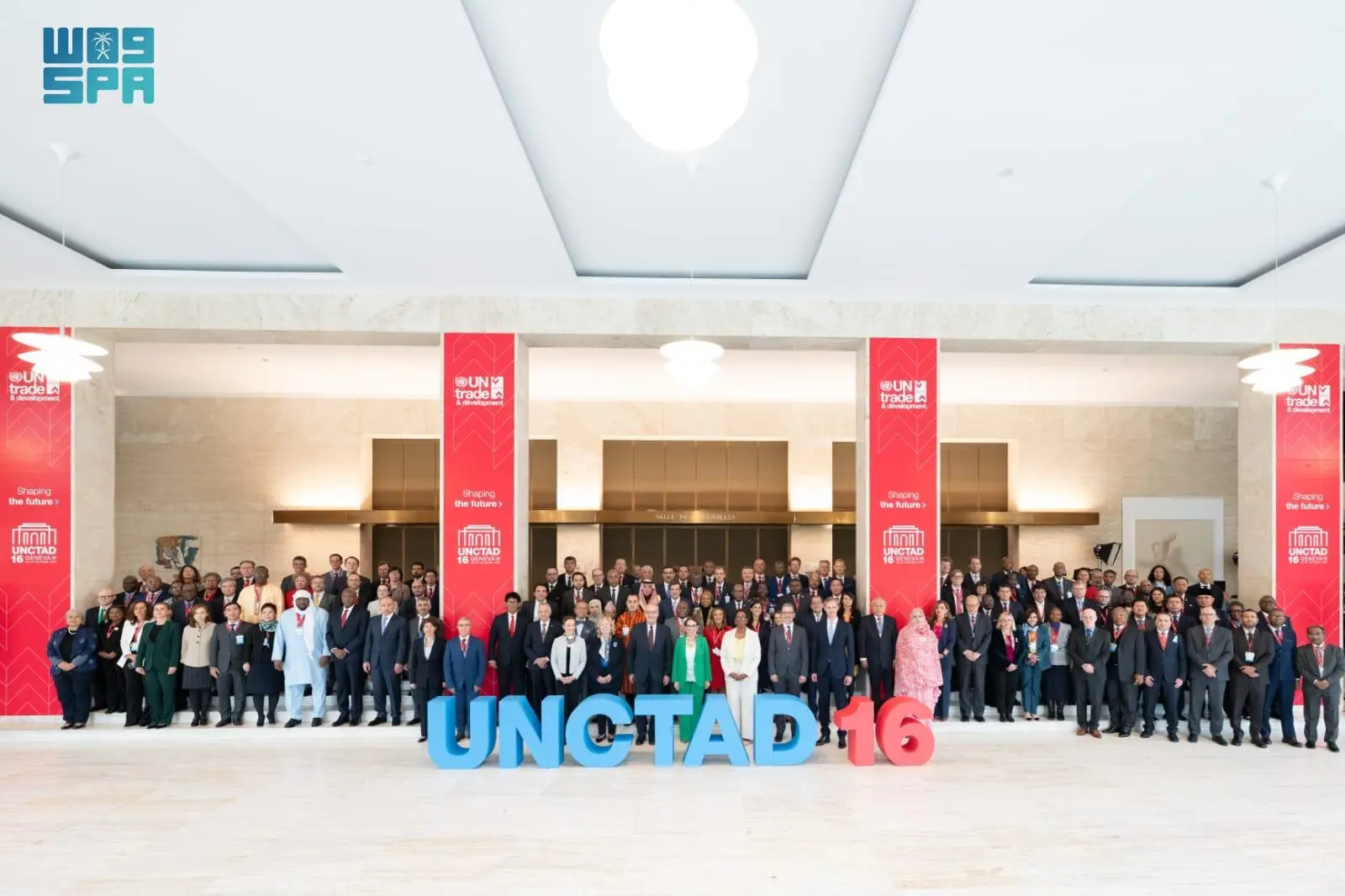
Minister of Commerce Participates in UNCTAD Session with 195 Countries
Minister of Commerce and National Competitiveness Center Board Chairman Dr. Majid Al-Kassabi emphasized the role of Saudi Vision 2030 during the proceedings of the 16th session of the United Nations Conference on Trade and Development (UNCTAD).
He noted that the vision, launched by His Royal Highness Prince Mohammed bin Salman bin Abdulaziz Al Saud, Crown Prince and Prime Minister, has driven an unprecedented transformation of the Saudi economy, making it markedly different from the past.
The Kingdom is taking part in the session, hosted in the Swiss city of Geneva until the 23rd of this month under the theme "Shaping the future: driving economic transformation for equitable, inclusive, and sustainable development." The event brings together high-level governmental representation, including 60 ministers, 40 deputy ministers, and senior officials from 195 countries.
During the ministerial roundtable titled “Making the digital economy inclusive and sustainable through cooperation," Al-Kassabi highlighted the impact of Vision 2030 on the growth and development of the Kingdom’s digital economy. The session was moderated by journalist Isabelle Kumar and attended by the permanent representative of the Kingdom to the United Nations and other international organizations in Geneva, Ambassador Abdulmohsen bin Khothaila.
It featured the participation of Zimbabwean Minister of Finance, Economic Development and Investment Promotion Dr. Mthuli Ncube, Swiss State Secretary and Director of the State Secretariat for Economic Affairs Helene Budliger Artieda, and UN Industrial Development Organization Director-General Gerd Müller.
Al-Kassabi explained that Vision 2030 has provided a comprehensive framework, making reform a continuous process. This has resulted in updated legislation, restructuring, and digitalization of thousands of procedures. From the process, the impact is evident in the private sector's contribution rising to nearly half of gross domestic product (GDP), with the digital economy accounting for 16% of GDP. Al-Kassabi noted that the Saudi Business Center has been instrumental in improving the business environment, particularly in e-commerce, and stated that the Kingdom aims to make the digital economy accessible to entrepreneurs.
During the session's proceedings, Al-Kassabi held a series of meetings that focused on strengthening economic cooperation and facilitating trade with several ministers and international officials, including Omani Minister of Commerce, Industry and Investment Promotion Qais bin Mohammed Al-Yousef, Iraqi Minister of Commerce Atheer Al-Ghrairi, Egyptian Finance Minister Ahmed Kouchouk, Costa Rican Minister of Foreign Affairs and Worship Dr. Arnoldo André Tinoco, Moroccan Minister of Industry and Trade Ryad Mezzour, Qatari Minister of State for Foreign Trade Affairs at the Ministry of Commerce & Industry Dr. Ahmed bin Mohammed Al-Sayed, and Algerian Minister of Trade and Export Promotion Dr. Kamel Rezig. Al-Kassabi also met with World Trade Organization (WTO) Director-General Dr. Ngozi Okonjo-Iweala and UN Conference on Trade and Development Secretary-General Rebeca Grynspan.
The session addressed key topics, most notably the digital economy and its impact on inclusivity and sustainability, the importance of strengthening international cooperation, and the role of UNCTAD in shaping relevant policies, especially in data governance and an inclusive digital economy. It also highlighted UNCTAD's capacity to assist countries in building resilient digital ecosystems that bridge divides, improve data governance, foster innovation, and support the circular economy.








